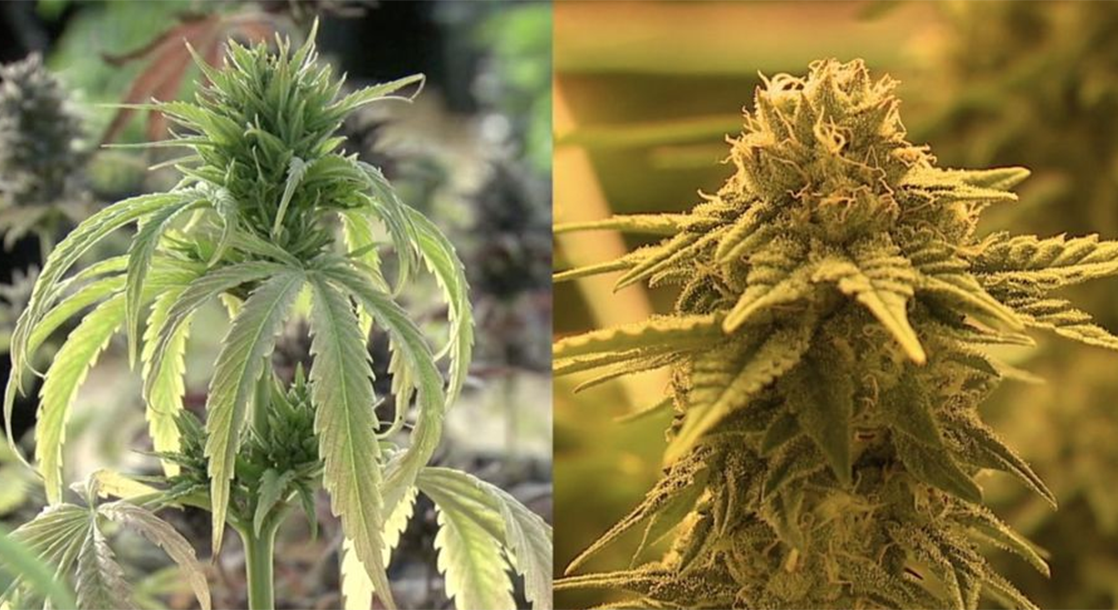Image via
A bipartisan team of Congressmembers just filed a “DANK” new bill that would force federal health agencies to collaborate on a comprehensive cannabis research agenda.
The bill, filed by Reps. Dave Joyce (R-OH) and Scott Peters (D-CA), is officially titled the “Developing and Nationalizing Key Cannabis Research Act.” But when you abbreviate those first four letters – as Congress usually does – you get DANK. To be fair, the text of the bill doesn’t ever use the abbreviation, so there’s a chance that it’s all just a coincidence. Rep. Joyce has championed dozens of cannabis reform bills during his tenure in the House, though, so he’s probably aware of popular pot slang.
Beyond the potential play on words, the DANK bill is a serious effort to force federal officials to take medical cannabis seriously. If passed, the legislation would require the National Institutes on Health (NIH) to collaborate with the Centers for Disease Control and Prevention (CDC), Substance Abuse and Mental Health Services Administration (SAMHSA), and other federal agencies to develop a unified federal cannabis research agenda.
The bill gives the feds one year to develop this agenda and sets out six specific objectives. At the top of that list is a mandate to study “the safety and efficacy of cannabis in providing therapeutic benefits for certain priority diseases or conditions,” according to Marijuana Moment. These conditions include epilepsy, multiple sclerosis, acute or chronic pain, PTSD, anxiety, Tourette syndrome, and “any other disease or condition determined to be appropriate.” Additional research would also be required to determine the ideal dosages and modes of ingestion for medical marijuana.
Researchers would also be required to investigate any potential public health and safety risks related to cannabis use. Studies exploring the “nontherapeutic impacts of cannabis use,” including long-term use and use by “at-risk populations” like children or pregnant people, would also be required. The bill also asks federal agencies to research public safety concerns including youth access to legal weed, impaired driving, and high-potency pot.
Federal agencies would also need to collect population-wide data on cannabis use, using existing federal health surveys and healthcare records, plus new surveys and questionnaires. The NIH would be required to designate universities with a proven track record in marijuana research as “Centers of Excellence in Cannabis Research.” And to help these institutions conduct their studies, the bill would remove many of the restrictions that currently make it difficult for researchers to obtain high-quality cannabis for their experiments.
Lawmakers have filed dozens of similar cannabis research bills over the years, but only one has found its way to the president’s desk so far. Last year, legislators added an amendment to President Biden’s infrastructure bill that officially allows researchers in legal-weed states to study cannabis purchased from legal dispensaries. But although other efforts to pass other research bills have stalled, it’s looking likely that another important bill will pass this year.
This spring, the Senate passed the “The Medical Marijuana and Cannabidiol Research Expansion Act,” a bill that would make it easier for researchers to conduct medical cannabis and CBD research. This legislation would also require HHS to conduct a comprehensive report on medicinal cannabis, make it legal for doctors to discuss medical marijuana, and require the FDA to streamline its regulations on cannabis-based medicines.
But although its awkward abbreviation isn’t as witty as the DANK bill, the MMCREA seems destined for success. The House just approved their own version of the bill with strong majority support this week and sent it back to the Senate, who will almost certainly approve it again. From there it will head to President Biden, who will hopefully sign it into law.











